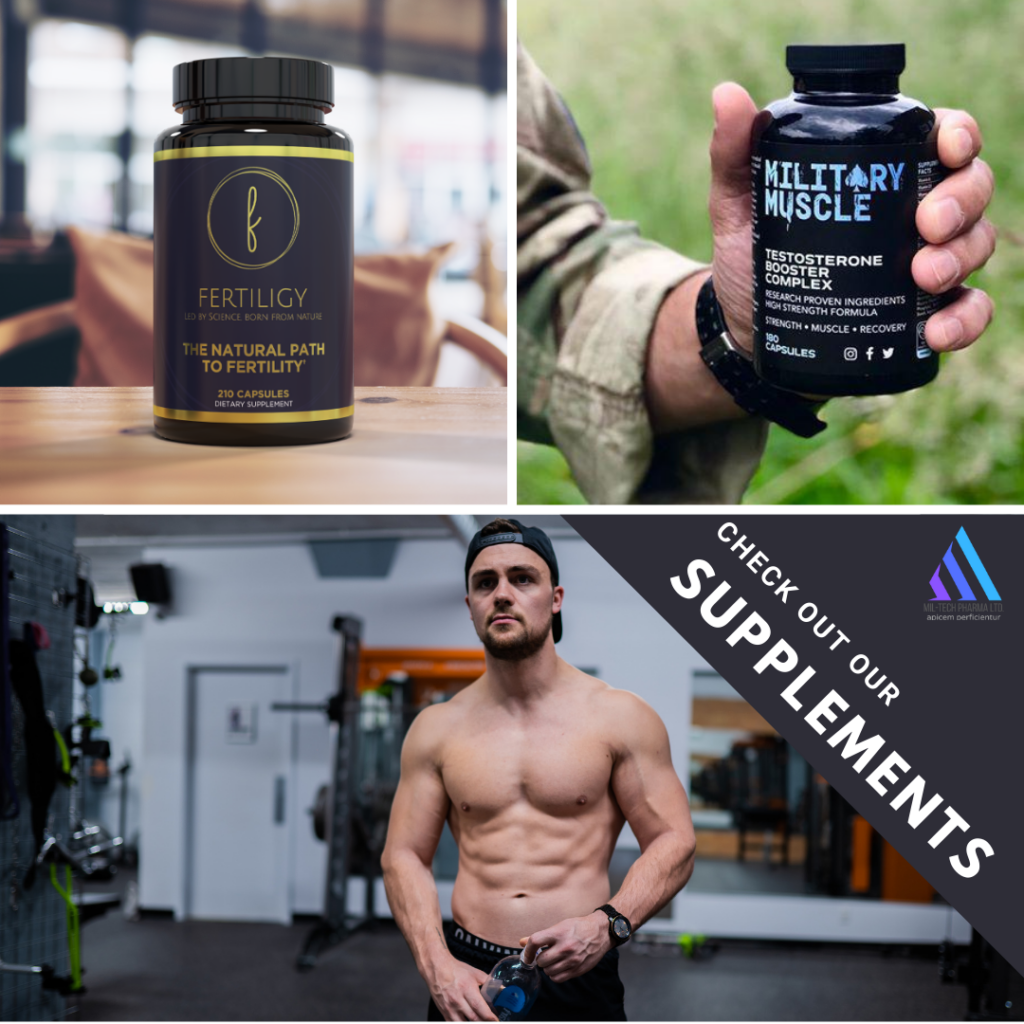Supplements vs Whole Foods
 Written by Ben: BA(Hons), PGCert. Sport & Exercise Nutrition. L2 Strength & Conditioning Coach.
Written by Ben: BA(Hons), PGCert. Sport & Exercise Nutrition. L2 Strength & Conditioning Coach.
–
When you start taking supplements seriously, there are always going to be a lot of questions.
You are going to be overwhelmed by the number of different products on the market, you are going to have to figure out what exactly you want to be taking supplements for and which ones are going to best suit your plans, and you are going to be confronted with the question of whether supplements are really better for you than a whole foods diet.
The whole foods diet is one that has become increasingly popular in the last few years and has experienced its own boom alongside supplements. But faced with a question of which is better, it quickly becomes apparent that there is more to this question than you might think.
In this article, we will look at:
- What Are Whole Foods?
- What Is The Difference Between Whole Foods And Supplements?
- What Do You Get From Whole Foods?
- What Do You Get From Supplements?
- The Practical Issue
- The Importance Of Balance
- Conclusion
What Are Whole Foods?

‘Whole foods’ is a term that is used to refer to foods that have not been processed and which are eaten in their natural state or as close to it as possible.
That means you are looking at fruits, legumes, grains, and organic meat produce. The reason why it is so popular is that, in principle, you will be taking on all of the natural goodness of these foods without any of the nasty by-products that can come with processed food.
You don’t have to worry about what goes into the sausage if it’s not even on the menu, you avoid any growth hormones if you are only eating chicken that is organic free-range, and you avoid industrial-strength pesticides if you know the conditions that the spinach was grown under.
What Is The Difference Between Whole Foods And Supplements?
When you take a vitamin and mineral supplement, you are consuming a blend that has been artificially created to give you the dose that your body needs. Some supplements contain qualities that have been artificially synthesized. The main difference between the two is often found in the amount of the vitamin or mineral that they contain.
What Do You Get From Whole Foods?
The main reason why people choose whole foods is that they are looking for more vitamins and minerals in their diet. One of the main benefits of a whole food diet is that you are not just getting one specific vitamin or mineral, you are getting a broad spectrum.
For example, spinach is high in iron, but when you eat it, you are also taking getting additional nutrients such as magnesium, potassium, calcium, and you are getting roughage too which helps your digestive system.
However, the iron in spinach is non-heme, which isn’t as easily absorbed by the body as the heme iron found in meats. So, if you are vegetarian you may wish to consume something high in vitamin C to aid absorption.
What Do You Get From Supplements?

Supplements are, as the name suggests, there to make sure that you are getting enough of the vitamins, minerals, and other substances that you would not be getting enough of in your regular diet. While a lot of whole foods are loaded with goodness that you need, they may not be giving you as much as you need.
This is especially true if you are someone who leads an active lifestyle or you are committed to a serious fitness regimen because high physical stresses place a higher demand on macro and micronutrient needs.
Your body loses minerals during exercise, and if you are not giving yourself the best possible base from which to work from, you are going to find that you are getting tired and run down very quickly.
Supplements are often created to target common deficiencies, such as vitamin D and iron, and they can be created with a specific lifestyle in mind. This is where fitness supplements can come in handy. You can choose a supplement that is high in iron, B-vitamins, A-vitamins, and extracts that are harder to come by in your diet, such as fenugreek.
The Practical Issue
One of the biggest stumbling blocks to making sure that you are getting everything that you need from a whole foods diet is the question of practicality.
Are you going to be able to get the kind of fresh vegetables you need all year round? Do you have time in your day to make sure that you can prepare the kind of meals that you need to be taking on the minerals and vitamins you need in the kinds of quantities you need them in? And then there’s the vegan or vegetarian question. Research has found that many athletes have little knowledge or capability to fulfill their nutritional requirements effectively.
Then there’s the consideration of being able to consume foods easily pre, post, and during physical activity. It’s hard to eat a sandwich whilst riding a bike, but much easier to consume a gel or sports drink high in electrolytes, minerals, and carbohydrates. Athletes are often under the spotlight for eating disorders or under-consuming for their nutritional requirements which can lead to a number of physiological problems.
Whole foods diets include fish, chicken, and some red meat. These will give you minerals such as iron, magnesium, and calcium, but if you are opting for a meat and fish-free lifestyle, then you are going to be very hard-pushed indeed to make sure that you are getting enough of those essentials. Supplements can offer vegan-friendly ways to get you these crucial ingredients.
The Importance Of Balance
We mentioned that one of the benefits of whole food is that you get a broad spectrum of vitamins, minerals, and other qualities. Supplements can also be used to give you the kind of base you need for something like intensive exercise, but they have a range of different benefits. It would be incorrect to suggest that simply taking on a lot of one vitamin or eating nothing but grains will keep you healthy.
You need to make sure that you are eating healthily, even if you are taking supplements, and you need to make sure that you are getting enough of the vitamins and minerals you need, even if you are eating a whole foods diet. This is where we can see that the question of a “versus” is not really that helpful. Ideally, you should be employing a combination of the two, particularly if you are an athlete who may be susceptible to deficiencies.
Conclusion
Whole foods are a great way to make sure that you are eating healthily and that you are cutting out as many of the unnecessary and potentially harmful additives and chemicals that can find their way into our food.
It is also undeniable that whole foods will give you the vitamins and minerals that your body needs. However, supplements are enormously helpful, and they can cover a broader spectrum of essentials to help all parts of your daily life.
Military Muscle has been created by the team at Mil-Tech Pharma to provide a great boost for your body for intensive exercise and endurance. It contains high levels of Vitamin D, iron, and plant extracts that can boost your testosterone and keep your immune system firing on all cylinders, and it’s vegan friendly.



